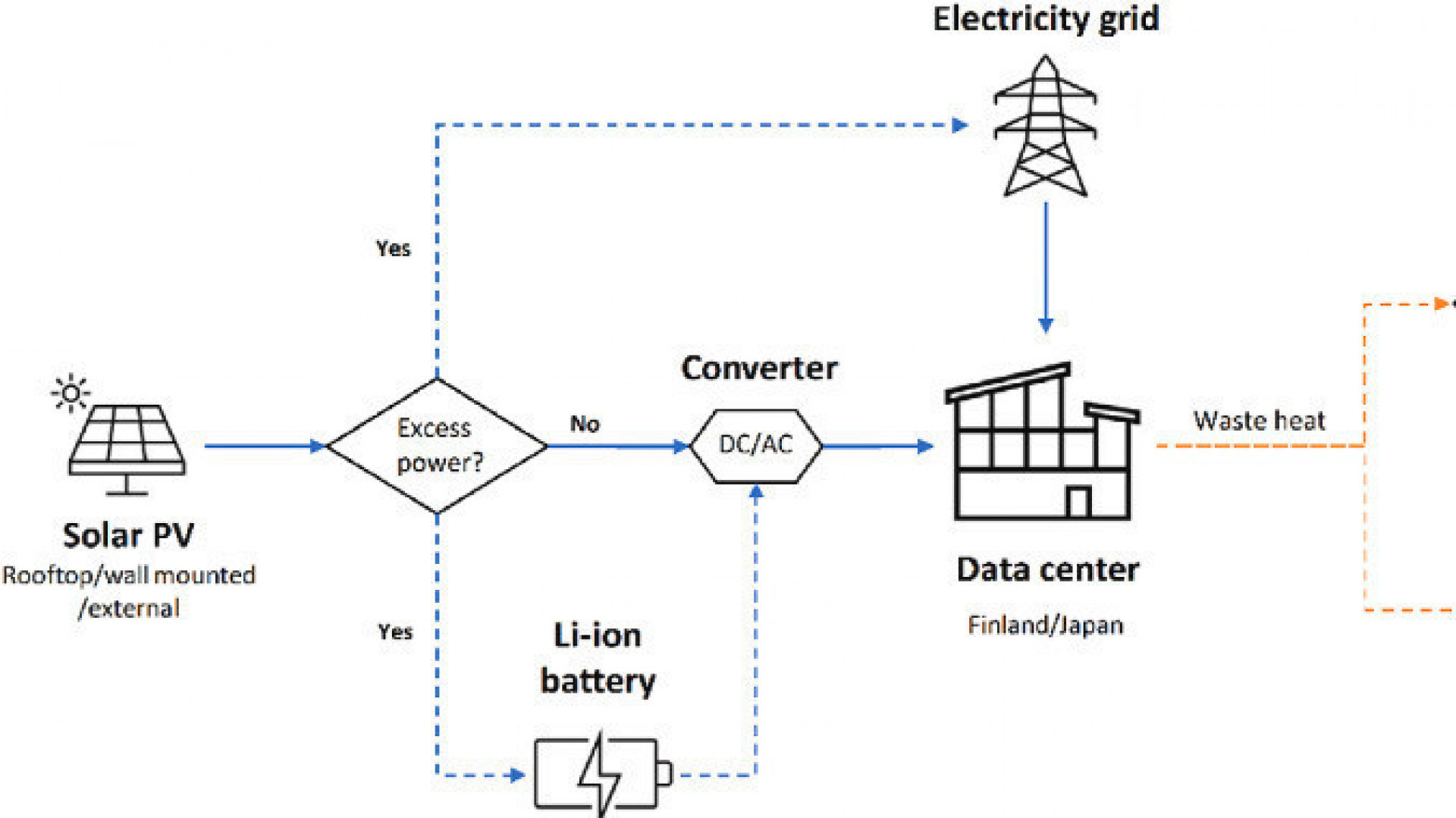A recent international study, conducted in Finland and northern Japan, analyzed how solar PV could be utilized to power data centers in cold climate regions, along with the utilization of the data center waste heat.
The study 'Potential of solar photovoltaics and waste heat utilization in cold climate data centers. Case study: Finland and northern Japan' in Renewable and Sustainable Energy Reviews assessed the potential of solar PV systems and waste heat utilization in cold climate data centers, with a case study analyzing the costs and benefits of these technologies in different sized DCs located in both Finland and northern Japan.
From the report: 'The modelled results indicate that solar PV systems can cost-effectively be used to provide renewable electricity to data centers in both Finland and northern Japan, with electricity prices having the largest influence on economic performance. The use of larger external PV systems is shown to be cost-effective at the higher electricity prices seen in 2022, whereas smaller rooftop PV systems and grid electricity provide more economic benefits at 2019 price levels. Selling surplus PV electricity to the grid and using waste heat for district heating is also shown to be effective in data centers located in Finland, whereas battery storage and snow melting are better suited to utilize surplus PV electricity and data center waste heat in northern Japan.
Overall, the findings of this study highlight the importance of sector coupling and co-operation between DC operators, energy companies, and grid operators in order to effectively implement sustainability measures in data centers. Additionally, this work indicates that there is a clear need for supplementary renewable grid electricity to make DCs fully carbon neutral within the coming decade. The analysis and conclusions presented in this study are also applicable to DCs located in other cold climate countries with similarities in energy infrastructure or climate conditions, and especially in many northern regions where the DC industry is rapidly growing.
Nevertheless, as most DC operators are yet to invest in solar PV systems, and waste heat utilization is still not widely practiced in the DC industry, further research on renewable energy use and regional energy efficiency measures in DCs is also needed, as the effectiveness and costs of both solar PV systems, energy storages, forms of waste heat re-use, and electricity market conditions regularly change and differ between countries. Additionally, alternative and optimized means of operating energy systems in DCs should be studied in further detail. For instance, future research could analyze how solar PV battery storages and existing reserve power in DCs can be operated to provide ancillary services to the electricity grid and participate in balancing markets, as this could both improve the cost-effectiveness of energy storage systems in DCs, as well as become an additional source of revenue for DC operators.'














